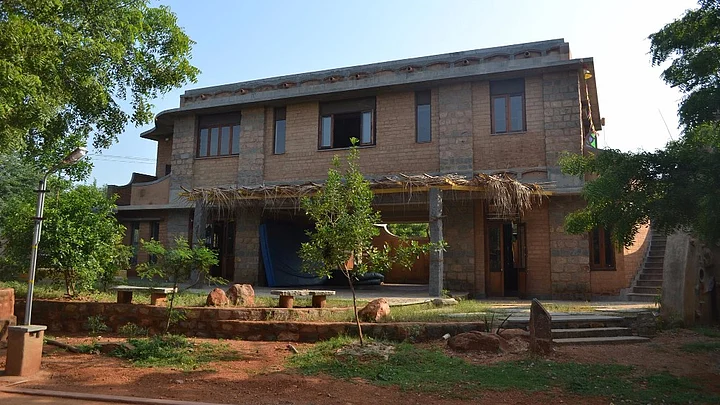Friday and Saturday nights are when the Student Sea Turtle Conservation Network (SSTCN) come alive, when they start a 7 km walk to Besant Nagar Beach from Neelangarai Beach at 11 pm.
They are a voluntary group – comprising mainly of students – working since 1987 to conserve and create awareness about the endangered Olive Ridley turtle, reported The Better India.
‘Arun Anna’ is a name that’s familiar to most of the young volunteers in the turtle walks. Arun Venkataramanan is a senior member of the SSTCN team who has led hundreds of walks over the years.
In 2009, Arun and his wife Poornima left their Chennai city life behind and relocated to to Tiruvannamalai, where they started Marudam. Qualified as an engineer, Arun used to be an environment education teacher at Chennai’s Krishnamurti Foundation School.
The idea for a school which focussed on sustainable living was born when another UK-based couple Leela and Govinda came for an afforestation project to Tiruvannamalai.
They invited Arun to help start The Forest Way, an NGO that works to plant and protect trees and Maduram, a farm school which they began on donated land.
They had to transform the land, then a rock-strewn yard which barely had trees, into a clean space. They began to plant trees and protect the existing ones, gradually returning vegetation to the dusty land.
Since then, they have also built a school with an adjoining organic farm and as volunteers joined the community, the school got formal recognition from the Board of Elementary Education to have classes till grade 5.
Students belong to diverse backgrounds and the curriculum is kept flexible to give due importance to communication, investigation and practical knowledge.
Education is imparted by involving nature in it. Maths is taught through pottery or baking or even goat rearing. Subjects like farming, tailoring, gardening, composting, carpentry and cooking are also taught.
Under Arun’s guidance, students go on turtle conservation walks, interact with the forest tribes of the nearby Javadi hills and learn about the nearby rainforests. Maduram grows 85 percent of the school’s food requirement on the organic farm, including grains, oilseeds, pulses, millets, fruits and vegetables. The school children also partake in the farming.
The urine and dung of the seven cows that live on the farm (in addition to four dogs, two cats and countless birds) is used to produce manure and biogas.
Today, Maduram is home to 5 families, 23 teachers and 70 children, all embodying the meaning of sustainable living.
(At The Quint, we question everything. Play an active role in shaping our journalism by becoming a member today.)
